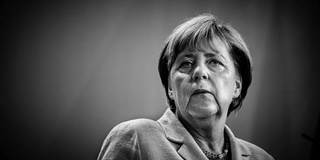OnPoint Subscriber Exclusive
Longer Reads provide in-depth analysis of the ideas and forces shaping politics, economics, international affairs, and more.

German Europe or European Germany?
The UK’s vote in June to leave the European Union not only changed the course of British history, but also underscored fundamental questions about Germany’s role in Europe and the world. With the migration crisis weakening German Chancellor Angela Merkel politically just when her authority in Europe is most needed, the new “German Question” can no longer be avoided.
CAMBRIDGE – Even before voters in the United Kingdom decided in June to “Brexit” the European Union, notes Anatole Kaletsky of Gavekal Dragonomics, German Chancellor Angela Merkel was widely credited with “finally answering Henry Kissinger’s famous question about the Western alliance: ‘What is the phone number for Europe?’”